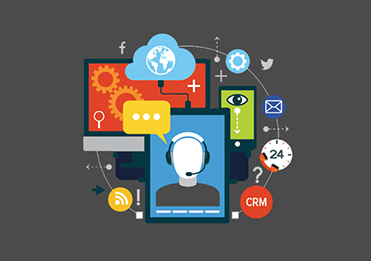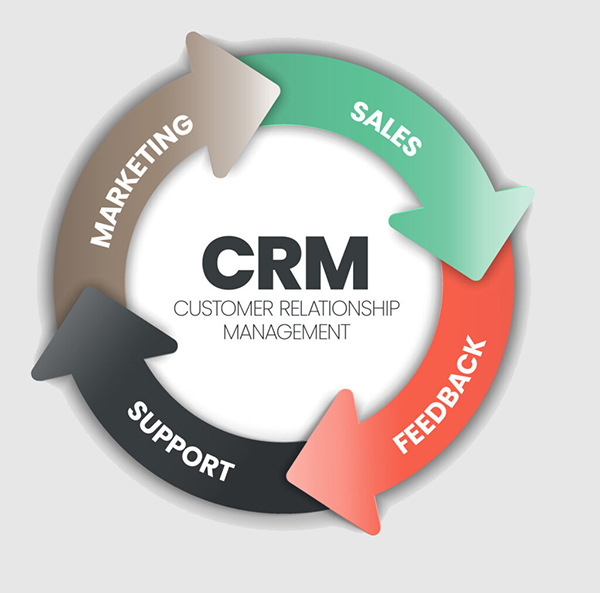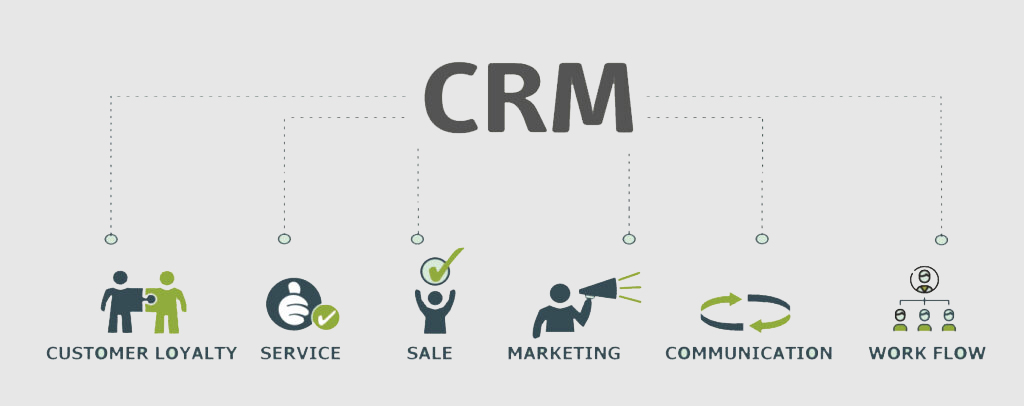CUSTOMER RELATIONSHIP MANAGEMENT
Customer Relationship Management (CRM) is a strategy that focuses on managing interactions with customers and potential customers to improve customer satisfaction, loyalty, and retention. It involves collecting and analysing customer data to better understand their needs and preferences, and then using this information to tailor marketing, sales, and customer service efforts. CRM systems allow companies to track customer interactions across multiple channels, such as email, phone, social media, and in-person interactions, to provide a consistent and personalised experience.


- Quote Requests
- Order Management
- Sub-Accounts / Departments
- Chats, Conversations & Email
- Support Management
- CRM
Add Value to your Client Engagements
Provide a seamless customer experience across marketing, sales, and customer support, that increases engagement, wins more deals, and fosters brand loyalty.

What is CRM?
Customer relationship management (CRM) is a process in which a business administers its interactions with customers, typically using data analysis to study large amounts of information.
CRM systems compile data from a range of different communication channels, including a company’s website, telephone, email, live chat, marketing materials and more recently, social media. They allow businesses to learn more about their target audiences and how to best cater for their needs, thus retaining customers and driving sales growth. CRM may be used with past, present or potential customers.
The concepts, procedures, and rules that a corporation follows when communicating with its consumers are referred to as CRM. This complete connection covers direct contact with customers, such as sales and service-related operations, forecasting, and the analysis of consumer patterns and behaviors, from the perspective of the company.
360 Degree Client Engagement
The Dealer Zone offers a dedicated area for the client to manage all the engagements that they share with the company. From quote requests, to order management as well as queries, chats, and messages; these are all managed within a secure central client portal.

What?
Create a digital platform that provides a 360-degree view of each individual client relationship in one central location, lending itself towards helping to understand and respond to the needs of all clients in a timely and professional manner.
Why?
With so much data created and collected for each client, the ability to be able to bring every single source together in one place gives you the ability to ensure that an understanding of the wants, needs and concerns of every individual are maintained.
How?
By aggregating all the client engagement points, data and communication, we aim to achieve the following:
Improved Informational Organisation
The more we know about our customers, the better we will be able to provide them with positive experiences. Everything that they do, and every interaction that they have with our organisation needs to be identified, documented, and recorded. To do this, we need to move beyond the sticky-notes and disorganised filing cabinets and utilise organisational technology that not only accurately quantifies and categorises data for easy future reference, but also makes that data available across departments.
CRM allows us to store a vast list of customers and any important information regarding them. Access to their file is convenient due to the cloud, so no matter who it is that is helping the customer in question, they will have the same actionable data instantly available. This results in less wasted time for clients and employees.
Enhanced Communication
It is possible for any employee to provide the same high level of service, by having access to the same customer data. Clients may have a single, main point of contact, but there is a good chance that at some point that contact may not be available, and the client will be forced to have to work with someone new. When that happens, many customers face the unhappy prospect of having to ‘start fresh’ with someone who does not understand their own unique preferences and issues.
CRM does away with this concern, by making detailed customer information communicable to whomever might need it. As such, it will not matter who it is that is currently assisting the client, because they will be working from the same information. And given that CRM is cloud-based and accessible from any device, the communication benefits of mobile CRM are not limited to the office but can be leveraged in the field as well.
Improved Customer Service
Taking care of problems quickly and efficiently is a show of respect for our client’s time. With CRM, as soon as a customer contacts the company, a representative will be able to retrieve all available activity concerning past purchases, preferences, and anything else that might assist them in finding a solution. Should a solution not be readily apparent, then bringing in other representatives in on the issue is simple and manageable.
Automation of Everyday Tasks
Along with the surface details of any sale, there are hundreds of smaller tasks that must be completed for everything to function properly. Forms need to be filled out, reports need to be sent, legal issues need to be addressed—these ancillary chores are a time consuming, yet vital aspect of the sales process.
By automating all the mundane tasks, representatives will be able to focus more of their efforts towards resolving client needs and driving sales, while the automated CRM system takes care of the details.
Greater Efficiency for Multiple Teams
Automatically stored communication allows you to view emails, calendar, and phone call details in one easily accessible place. Sales, marketing, and customer service teams can share valuable information about clients to continue to funnel them down the pipeline to get the desired result of closing a sale, knowledge of new products, or excellent customer service.
Every department can now tag team to get the right information to the right individual.
Improved Analytical Data and Reporting
Information storage in one place leads to improved analyses of the data as a whole. Automatically generated reports help to maximise your time, while personalised dashboard views help to quickly locate information needed, such as customer information, sales goals, and performance reports.
